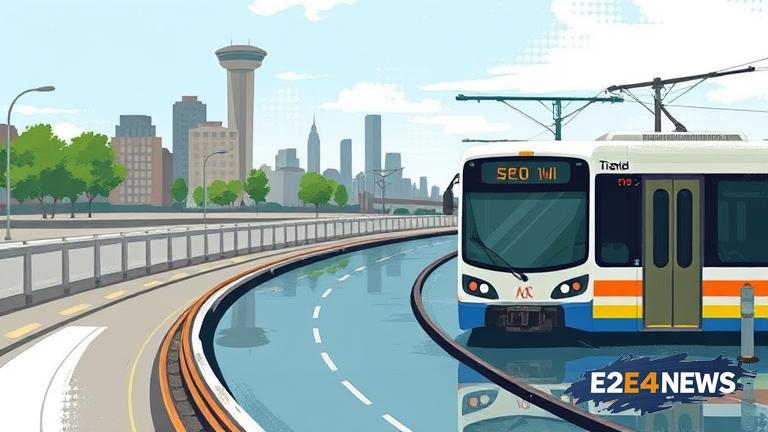A career in transit can be a rewarding and challenging profession, with a wide range of job opportunities available. The transit industry is responsible for moving millions of people every day, and it requires a team of skilled professionals to keep it running smoothly. From bus drivers to train conductors, and from transit managers to transportation planners, there are many different careers to choose from. One of the most in-demand jobs in the transit industry is that of a bus driver. Bus drivers are responsible for safely transporting passengers from one destination to another, and they must possess excellent driving skills and a strong knowledge of traffic laws. Another important job in the transit industry is that of a train conductor. Train conductors are responsible for ensuring the safe and efficient operation of trains, and they must be able to communicate effectively with passengers and other train staff. Transit managers are also essential to the smooth operation of the transit system. They are responsible for overseeing the day-to-day operations of the transit system, including scheduling, budgeting, and personnel management. Transportation planners play a critical role in the development of transit systems, using data and analysis to determine the most efficient and effective ways to move people. The transit industry is not just limited to public transportation, but also includes private companies that provide transportation services. With the rise of ride-hailing companies like Uber and Lyft, there are now more opportunities than ever for people to work in the transit industry. However, a career in transit can also be challenging, with long hours, high stress levels, and exposure to difficult passengers. Additionally, the transit industry is heavily regulated, and professionals must comply with a wide range of laws and regulations. To succeed in a career in transit, one must possess excellent communication and customer service skills, as well as the ability to work well under pressure. A strong knowledge of traffic laws and regulations is also essential, as is the ability to operate complex equipment and technology. Many transit professionals start their careers as drivers or conductors and work their way up to management positions. Others may start in related fields, such as logistics or transportation planning, and then transition into the transit industry. The transit industry is also becoming increasingly focused on sustainability and environmentalism, with many companies investing in electric and hybrid vehicles. This shift towards sustainability is creating new job opportunities in areas such as alternative fuel management and green transportation. Furthermore, the use of technology is becoming more prevalent in the transit industry, with many companies using data analytics and artificial intelligence to optimize routes and improve efficiency. As the transit industry continues to evolve, it is likely that new job opportunities will emerge, particularly in areas such as autonomous vehicles and smart transportation systems. In conclusion, a career in transit can be a rewarding and challenging profession, with a wide range of job opportunities available. Whether you are interested in driving, managing, or planning, there is a place for you in the transit industry. With the right skills and training, you can succeed in this exciting and dynamic field. The future of the transit industry is bright, with new technologies and innovations emerging all the time. As the world becomes increasingly urbanized, the demand for efficient and effective transit systems will only continue to grow. Therefore, now is the perfect time to consider a career in transit, and to be a part of this exciting and rapidly evolving industry.





